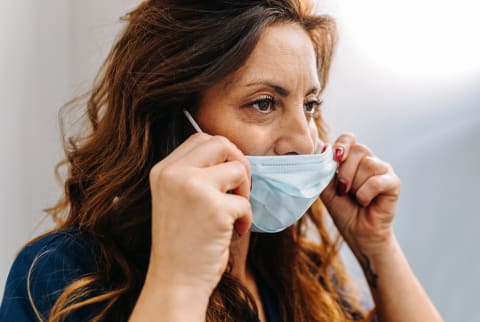Advertisement
Can Wearing A Mask Really Protect Against Coronavirus?


Though information about the novel coronavirus is still emerging, we do know that the disease is spread through respiratory droplets. To avoid contacting those germs, many people are purchasing medical masks. But how effective are they really?
We spoke to infectious disease specialist Amesh Adalja, M.D., to get his take on the use of medical masks in the general public.
Why don't masks always work?
Unlike health care workers, when the general public wears medical masks, they often don't couple it with other necessary precautions.
"They're not washing their hands as frequently as they need to," Adalja said, "or they're sticking their hands underneath the mask to scratch their mouth or nose." When they perform these actions, the benefit of the mask is canceled out.
Additionally, when the general population purchases masks, they're limiting supplies for health care facilities that actually rely on them.
Who should be wearing masks?
If you're the one infected, wearing a mask can help protect other individuals. "But the best policy if you're sick, coughing, or have a fever, is to stay at home and avoid exposing it to others," Adalja said.
When treating patients who have a droplet-spread respiratory viral infection—like coronavirus or influenza—doctors will wear surgical masks. Similarly, the Centers for Disease Control and Prevention (CDC) said anyone "taking care of a person with suspected 2019-nCoV infection," should wear a mask1.
Otherwise, if you aren't showing signs of a respiratory infection, you really don't need to be wearing a mask. Taking other precautions, like washing your hands, distancing yourself from people who are sick, and keeping your surfaces clean (remember, coronavirus can live for up to nine days on a hard surface) are likely more preventive.
Unnecessarily wearing masks might be a reaction to misinformation, which creates a misconstrued risk perspective. But don't worry, we debunked a few common coronavirus myths for you.